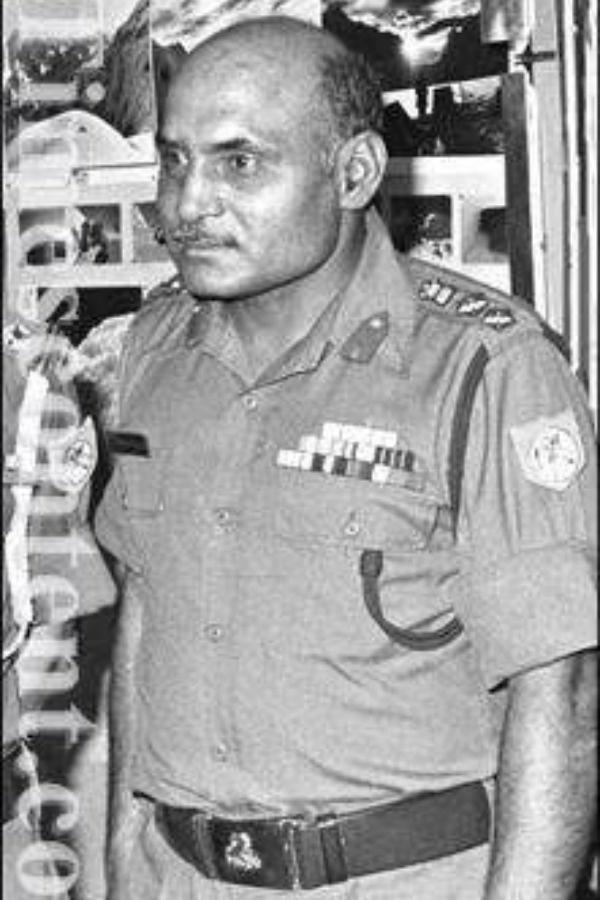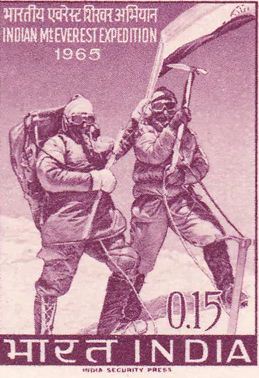Col. Narendra “Bull” Kumar (Retd.) PVSM, KC, AVSM, the Legend of Siachen Passes Away
The legendary Indian soldier-mountaineer Narendra Kumar, aged 87, passed away in New Delhi at the Army Research and Referral Hospital, due to age-related illness on 30th December 2020. He was cremated with full military honours on the last day of what has been a tragic year.

He was born in Rawalpindi, now in Pakistan, on 8th Dec 1933, and heard about the country’s independence on board-ship while on his way back from a Scout Jamboree in Paris. He settled in Shimla, India, where his parents had migrated during the partition.
He joined the Indian Army as a cadet, at the Indian Military Academy at Dehradun, in 1950, and was commissioned in the Kumaon Rifles in 1954. It was at the Academy that he earned himself the nick-name 'Bull' after his first boxing match. Though he lost the bout to a senior cadet Sunith Francis Rodrigues, who later went on to become the Chief of Army Staff, his unrelenting tenacity against adversity justly earned him this sobriquet which would define both his military and mountaineering career.
A highly decorated soldier, he was awarded the Param Visisht Seva Medal. He remains the only colonel to have ever been awarded this medal, usually reserved for Generals. He was also the recipient of the Kirti Chakra and the Ati Visisht Seva Medal.
He was also awarded the Padmashri, the fourth-highest Civilian Award in India, the Arjuna Award for his successful first Indian Ascent of Everest when they put a then-record nine atop the summit, the Indian Mountaineering Foundation Gold Medal, and the Mac Gregor Medal for the best reconnaissance and exploration survey in the remote areas of the Himalayas.
India and its military owe him a huge debt of gratitude for having secured the Siachen Glacier from the aggressive cartographic designs of her neighbors. As the mountaineer – soldier who first realized these mala fide intentions, raised it with his superiors and then organizing and leading two expeditions from the snout to the source of the glacier has long become the stuff of legends. In his customary style he said, “Once you get the heights, you are the tiger. We put the tricolor at the farthest end of Siachen”.
The Siachen Military Base is named the Kumar Base in his honour. This is a rare occasion when a military post has been named in honour of a living soldier. Traditionally they are usually named to honour martyrs.
He was a living legend as a soldier – mountaineer too. He had led numerous expeditions to not only the Indian Himalayas but also to the Bhutan and Nepal Himalayas. His illustrious mountaineering career warrants a separate full-length article, but it must be recounted here that he was the first Indian to reach 28,700 feet on Mt. Everest during the first unsuccessful Indian expedition in 1960. In 1965, he was the Deputy leader that put nine climbers atop Everest, a record at that time. His international renown was permanently cemented after the successful expedition to Kanchenjunga in 1977 by the North East spur route.

His huge experience, organisational, and administrative capabilities were rightly utilised when he was asked to head the countries premier institutes. He had served as the Principal of the Himalayan Mountaineering Institute in Darjeeling, Principal of the National Ski School and Head of the Institute of Skiing and Mountaineering at Gulmarg, and Commandant of the High Altitude Warfare School.
His experience was again called upon and he was made a member of the Indian Antarctica Task Force, responsible for training and acclimatization of the civilian team.
His wide-ranging interests in adventure sports, extended to his efforts in beginning and popularising river-rafting and he was the first to descend the Indus in Ladakh and the Teesta in Sikkim.
He was responsible for training the first batch of Indian skiing instructors and led them on a descent from 23,360 feet to 15,500 feet, on Trishul. An ascent which had taken 10 days, took an hour and a half on the descent. He was also the President of the Ski Federation of India and the Vice President of the Indian Olympic Association.
A mountaineer - soldier, a soldier - mountaineer, a civilian in mufti, he was equally efficient and 'bullish' in all his endeavours and above all, a gentleman, a legend in his lifetime, he will be cherished and missed as one of the finest.
Photo Credit: India Post






